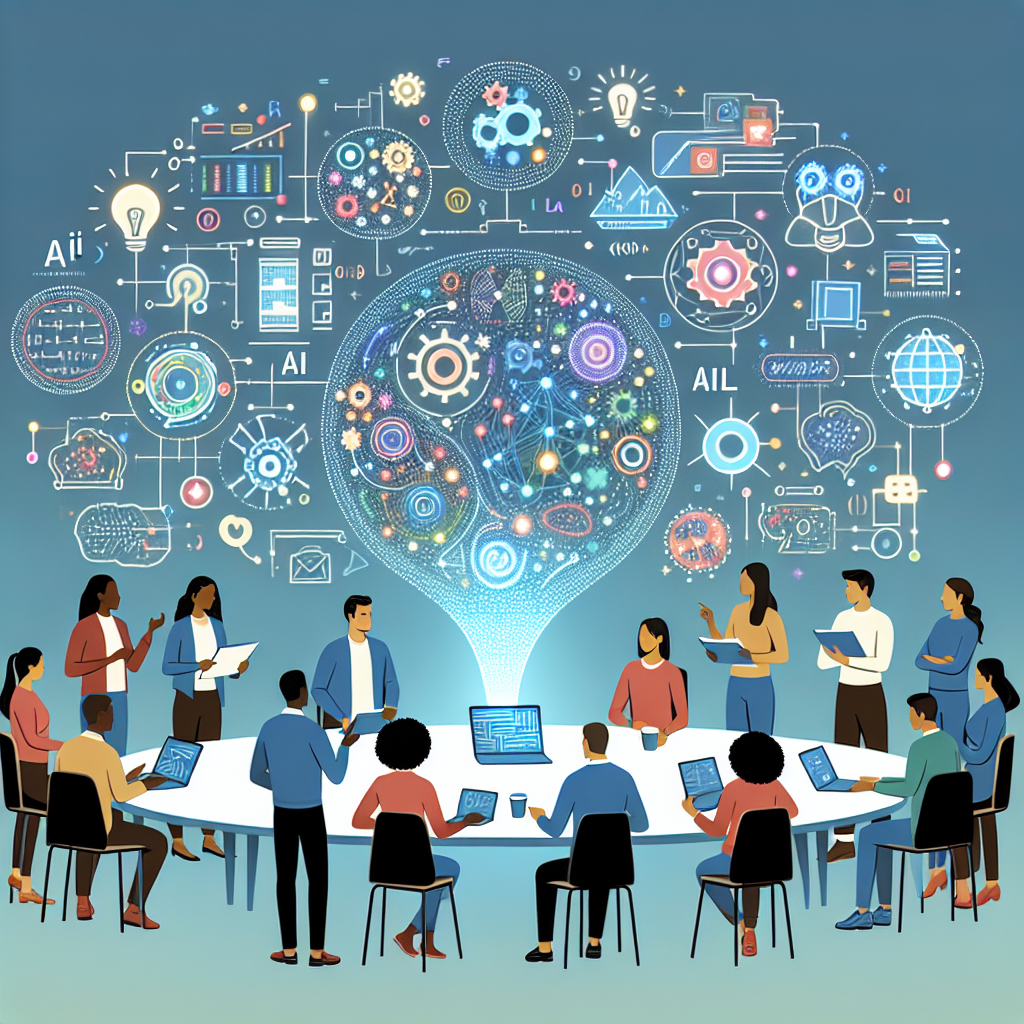The Democratization of AI: Breaking Down Complex Concepts
Artificial Intelligence (AI) has been a hot topic in recent years, with advancements in machine learning and deep learning technologies driving new applications in various industries. However, AI has traditionally been seen as a complex and inaccessible field, requiring specialized knowledge and expertise to work with. This has led to a lack of diversity in the AI workforce, with many believing that only those with a background in computer science or mathematics can succeed in this field.
But the tide is turning, as the democratization of AI is now making it easier for people from all backgrounds to access and work with AI technologies. This shift is breaking down complex concepts and making AI more accessible to a wider audience, ultimately driving innovation and pushing the boundaries of what is possible with this transformative technology.
What is the Democratization of AI?
The democratization of AI refers to the process of making AI technologies more accessible and easy to use for a broader range of users. This includes lowering the barriers to entry for working with AI, simplifying complex concepts, and providing tools and resources that enable people from various backgrounds to leverage AI in their work.
One of the key drivers of the democratization of AI is the development of user-friendly AI tools and platforms that abstract away the complexities of AI algorithms and models. These tools often come with pre-trained models and easy-to-use interfaces that allow users to build and deploy AI applications without needing to have a deep understanding of the underlying AI concepts.
Another important aspect of the democratization of AI is the emphasis on education and training. Many organizations and initiatives are working to provide resources and training programs that help people learn about AI and develop the skills needed to work with AI technologies. This includes online courses, workshops, and bootcamps that cater to a wide range of skill levels and backgrounds.
The democratization of AI also involves efforts to increase diversity and inclusivity in the AI workforce. By making AI more accessible to people from underrepresented groups, organizations can tap into a broader pool of talent and perspectives, ultimately driving innovation and creating more equitable opportunities in the field.
Breaking Down Complex Concepts
One of the biggest challenges in democratizing AI is breaking down complex concepts and making them accessible to a wider audience. AI is a multidisciplinary field that combines elements of computer science, mathematics, and cognitive science, making it challenging for beginners to grasp the fundamentals.
To address this challenge, organizations and educators are developing resources and tools that simplify complex AI concepts and provide intuitive explanations that anyone can understand. This includes visualizations, interactive tutorials, and real-world examples that help demystify AI and show how it can be applied in various domains.
For example, Google’s Teachable Machine is a user-friendly tool that allows users to train their own machine learning models without needing to write any code. By simply uploading images or sounds, users can create custom models that can classify objects or recognize patterns, making AI more accessible and engaging for beginners.
Similarly, platforms like TensorFlow Playground and fast.ai provide interactive environments that allow users to experiment with AI algorithms and models in a hands-on way. These platforms offer guided tutorials and exercises that walk users through the process of building and training AI models, helping them develop a deeper understanding of AI concepts.
In addition to these tools, organizations are also developing educational resources that cater to audiences with varying levels of expertise. From introductory courses that cover the basics of AI to advanced workshops that dive into cutting-edge research, there are now a wealth of resources available that can help people learn about AI and develop the skills needed to work with this technology.
FAQs
Q: What are some examples of democratized AI tools and platforms?
A: Some examples of democratized AI tools and platforms include Google’s Teachable Machine, TensorFlow Playground, fast.ai, and Microsoft’s Azure Machine Learning Studio. These tools provide user-friendly interfaces and resources that make it easier for people from all backgrounds to work with AI technologies.
Q: How can I get started with AI if I have no background in computer science or mathematics?
A: There are many resources available that cater to beginners with no background in computer science or mathematics. Online courses like Coursera’s Machine Learning for Everyone and Udacity’s Intro to Machine Learning with PyTorch provide a gentle introduction to AI concepts and techniques, while platforms like Teachable Machine and TensorFlow Playground offer hands-on experiences that require no coding experience.
Q: How can the democratization of AI help drive innovation and diversity in the field?
A: By making AI more accessible to a wider audience, the democratization of AI can help drive innovation and diversity in the field. By lowering the barriers to entry for working with AI, organizations can tap into a broader pool of talent and perspectives, ultimately leading to new ideas and approaches that push the boundaries of what is possible with AI technologies.
In conclusion, the democratization of AI is a transformative trend that is making AI more accessible and inclusive for people from all backgrounds. By breaking down complex concepts and providing tools and resources that simplify the process of working with AI, organizations are empowering a new generation of AI practitioners and driving innovation in the field. With a focus on education, training, and diversity, the democratization of AI is paving the way for a more equitable and innovative future in this exciting and rapidly evolving field.

